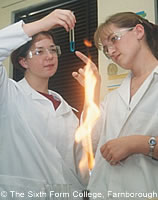Final stage of EU young scientists contest approaches
From 22 to 28 September, young scientists from across Europe and beyond will gather in Vienna, Austria in order to discover who has won the EU's 14th contest for young scientists. The EU contest was established in order to promote the ideals of cooperation and interchange between young scientists. Competitors come from the EU's Member States, some of the countries associated to the Fifth Framework programme (FP5), and for the first time this year, from Russia, Ukraine, Belarus and Georgia. Entrants will be hoping to win one of three first prizes worth 5,000 euro, three second prizes worth 3,000 euro or three third prizes worth 1,500 euro. In addition, some prizewinners will be selected to join distinguished researchers and engineers working on projects led by the European northern observatories, the European space research and technology centre, the European patent office and the Norwegian polar institute. Honorary awards also grant prizewinners the opportunity to represent the European Union at the London international youth science forum and the Stockholm international youth science seminar. The event is being supported by the Research DG's Science and society directorate under the Fifth Framework programme's Human potential programme. The Commission hopes the event will both strengthen and encourage national efforts to attract young people to scientific careers. All contestants in the EU contest have already won a top prize in their own country. They have also passed a 'pre-screening' by members of the contest's jury. At the contest, having already submitted their projects in written form, the young scientists will display their projects and will discuss their work with the jury. The 13 member jury represents both academia and industry and covers a wide range of scientific disciplines. The jury consults external experts if any of the projects fall outside their collective areas of specialisation.

